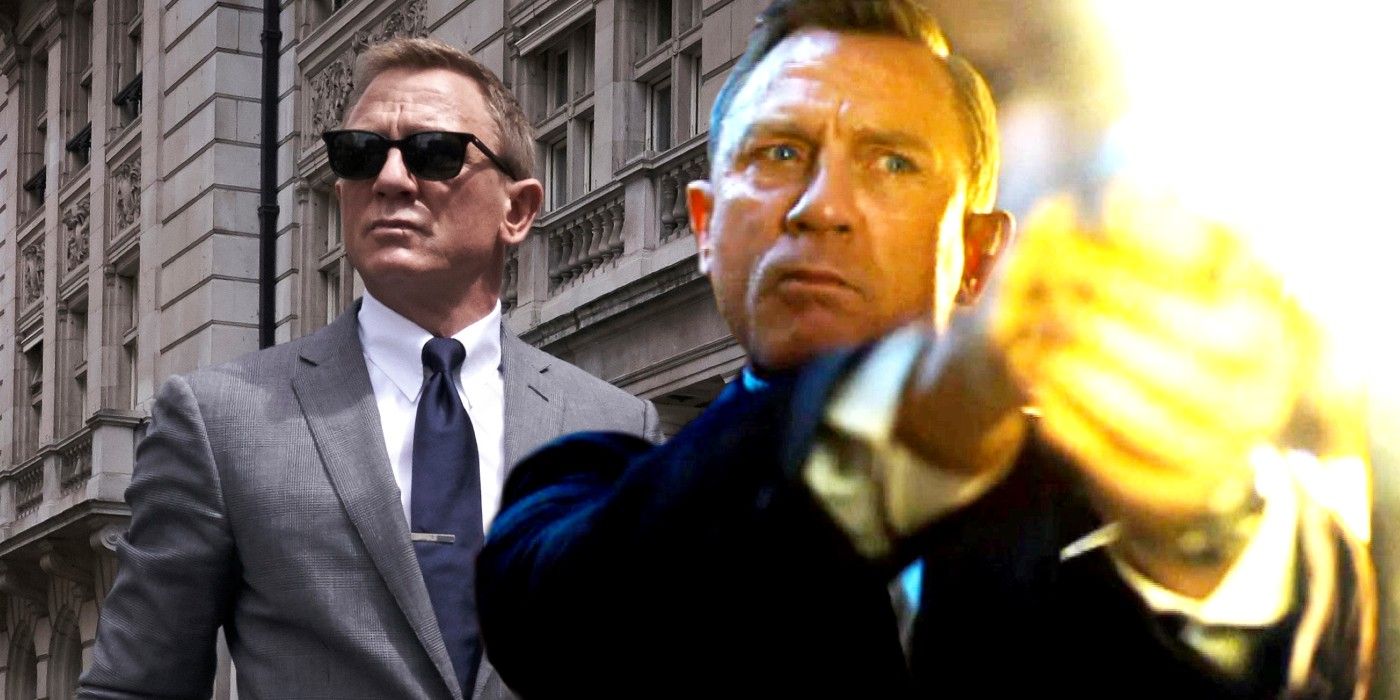Daniel Craig's comments regarding No Time To Die's ever-changing script reveal the most difficult aspect of making a James Bond film. It's no secret that No Time To Die hasn't been blessed with a smooth production. Daniel Craig's initial reluctance to return (putting it mildly) caused uncertainty over who would play Ian Fleming's iconic fictional spy. Eon nailed down their leading man, but then lost a director when Danny Boyle exited due to creative differences. Cary Fukunaga joined as a replacement and a Phoebe Waller-Bridge rewrite was ordered, but then along came a global pandemic and Amazon's purchase of MGM Studios, leaving Bond dangling precariously over a piranha tank of real-world issues.
No Time To Die is currently expected to premiere in October 2021 (although whether it actually will remains to be seen), and promotional duties are well underway. It was during one such interview that Daniel Craig revealed No Time To Die's script was being constantly "adjusted and readjusted" during the production process. On one hand, a certain amount of tweaking is inevitable when any film makes the long journey from script to screen, but constant changes can often be a worrying sign, especially since on-the-fly writing was one of the main problems behind Quantum of Solace, widely considered Craig's worst James Bond effort.
Rather than a Jaws-sized red flag suggesting No Time To Die will be a lowlight of future Bond-athons, however, the rewrites Daniel Craig mentions prove just how difficult it is to get 007's final chapter hitting the right notes. In the early-2000s, fans were sick of cheesy Bond and wanted something closer to Jason Bourne. Casino Royale did exactly that, but now many of those same fans have grown tired of Craig's grime and grittiness and want something more in-keeping with Connery/early-Moore. No Time To Die must stay true to the world 007's current incarnation occupies, but slide gently toward a lighter, more nostalgic approach reminiscent of Bond's former glories. The Danny Boyle incident proves how keen Eon are to strike their desired balance, and the liquid-like nature of No Time To Die's script might reflect another symptom of this tonal back-and-forth.
No Time To Die also shoulders the burden of closing out Daniel Craig's James Bond story. In years gone by, each Bond entry would be self-contained, with very little continuity between movies, regardless of whether the lead actor was a returning face or a total newcomer. Many Bond actors (Lazenby, Dalton, Brosnan) weren't even aware their final movie was their final movie until long after filming. In stark contrast, No Time To Die is heavily billed as Daniel Craig's swansong, heaping extra pressure on the script to deliver. The 25th James Bond outing must tie together 15 years of loose ends, bring resolution to its main cast, and provide a satisfying conclusion like no previous entry has been required to.
With No Time To Die facing such unique challenges, it's hardly surprising that the script has lived in a constant state of upheaval. In fact, No Time To Die's ongoing evolution highlights just how committed Eon, Daniel Craig and Cary Fukunaga are to nailing this landmark release, pleasing fans of all generations and actually ending 007's story. And if a fluid script was a sign of trouble behind-the-scenes rather than a healthy drive for constant improvement, Daniel Craig's comments probably wouldn't have found their way onto the official James Bond podcast.



